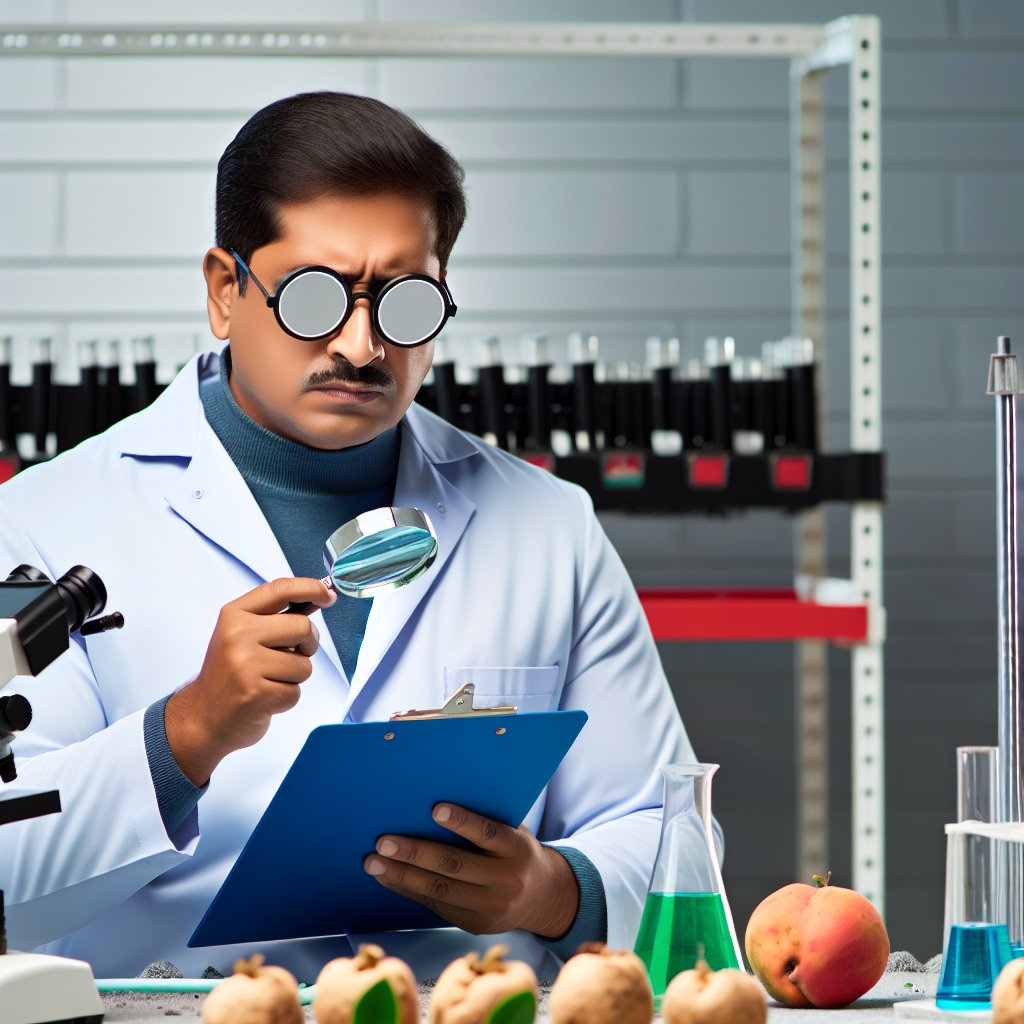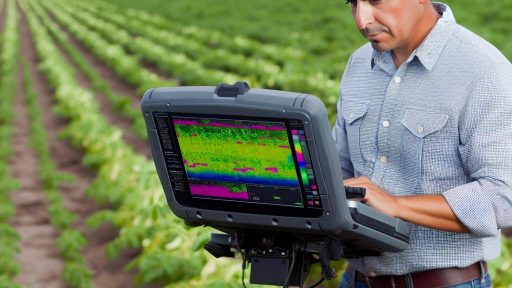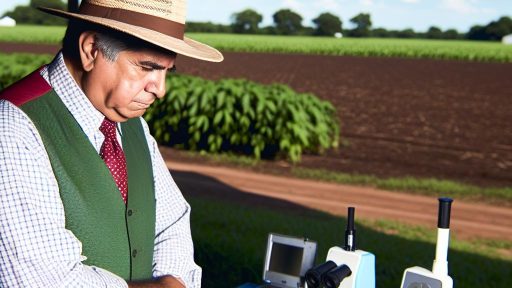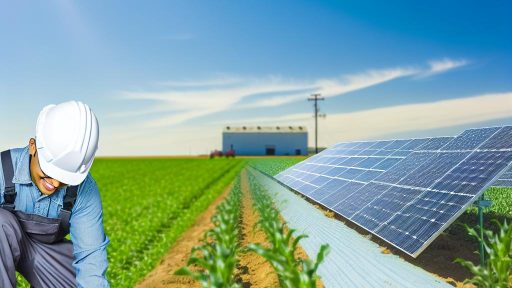Introduction to Food Safety in Agricultural Supply Chains
Food safety is critical in agricultural supply chains.
The safety of food affects consumers’ health and wellbeing.
Recent studies reveal alarming statistics about foodborne illnesses.
These illnesses result from contamination at various supply chain stages.
Understanding Foodborne Illnesses
Foodborne illnesses arise from harmful bacteria, viruses, and parasites.
Each year, millions of people suffer from food-related diseases.
Outbreaks often lead to hospitalizations and even fatalities.
Therefore, ensuring food safety is a paramount concern for everyone.
The Role of Traceability in Safety
Traceability plays a vital role in enhancing food safety.
It allows stakeholders to track products from farm to table.
With this knowledge, companies can quickly address contamination issues.
For instance, retailers can remove affected products from shelves.
This quick action significantly reduces the risk to consumers.
Challenges in Current Supply Chains
Many agricultural supply chains face significant challenges.
Data sharing among different players often lacks transparency.
Transform Your Agribusiness
Unlock your farm's potential with expert advice tailored to your needs. Get actionable steps that drive real results.
Get StartedAdditionally, paper-based systems can introduce human error.
As a result, tracking the origin of food products becomes complex.
Such difficulties can hinder rapid responses to safety issues.
Emerging Solutions
Innovative solutions are paving the way for a safer food system.
Adopting modern technology is essential for overcoming current challenges.
Blockchain technology promises enhanced traceability and security.
This technology enables real-time, tamper-proof data sharing.
Thus, stakeholders gain complete visibility throughout the supply chain.
Overview of Blockchain Technology and Its Relevance to Agriculture
Understanding Blockchain Technology
Blockchain technology provides a decentralized and transparent way to record transactions.
It utilizes a distributed ledger that allows multiple parties to access the same data.
This technology enhances security and trust in various sectors, including agriculture.
Each transaction is time-stamped and cannot be altered, ensuring data integrity.
The Role of Blockchain in Supply Chains
Blockchain facilitates traceability in agricultural supply chains.
Producers can track their products from farm to fork.
This improves accountability among all stakeholders involved.
Consumers gain confidence knowing the origins of their food.
Benefits for Food Safety
Blockchain enhances food safety standards across the agriculture sector.
It allows for immediate identification of foodborne illness sources.
This minimizes response time during food recalls.
Consequently, it protects public health and reduces waste.
Real-World Applications
Several companies are implementing blockchain to improve food safety.
For instance, FreshScope uses blockchain to track the journey of fruits and vegetables.
Similarly, IBM’s Food Trust allows participants to share data securely.
These innovations demonstrate blockchain’s potential in transforming agriculture.
Showcase Your Farming Business
Publish your professional farming services profile on our blog for a one-time fee of $200 and reach a dedicated audience of farmers and agribusiness owners.
Publish Your ProfileFuture Implications
The adoption of blockchain can reshape the agricultural landscape.
As technology advances, more farmers may join blockchain networks.
This could lead to industry-wide standards that enhance food safety.
Blockchain represents a promising solution for the agricultural supply chain.
Benefits of Implementing Blockchain for Traceability in Food Products
Improved Transparency
Blockchain enhances transparency throughout the food supply chain.
Every participant can view product information in real-time.
This access fosters trust among consumers and producers alike.
As a result, it becomes easier to identify potential issues.
Enhanced Food Safety
Using blockchain helps trace the origins of food products effectively.
Quick tracking allows for faster recalls in the event of contamination.
This swift action reduces health risks to consumers significantly.
Stronger Accountability
Every transaction recorded on the blockchain is immutable.
This characteristic promotes accountability among all stakeholders.
Producers and distributors must adhere to safety standards.
Consequently, it encourages better compliance with regulations.
Increased Efficiency
Blockchain technology streamlines processes within the supply chain.
Fewer intermediaries are needed, reducing transaction times.
As a result, costs associated with food distribution decrease.
Empowered Consumers
Blockchain enables consumers to access detailed product histories.
They can make informed decisions based on sourcing and handling practices.
This empowerment leads to increased consumer confidence in food safety.
Facilitation of Sustainable Practices
Blockchain supports sustainable practices through improved traceability.
It allows consumers to choose products aligned with their values.
By doing so, it encourages producers to adopt greener practices.
See Related Content: Benefits Of Advanced Crop Disease Detection Technologies For Today’s Farmers
Improving Transparency in Agricultural Supply Chains
Role of Blockchain Technology
Blockchain technology enhances transparency in agricultural supply chains.
It provides immutable records of transactions.
Every transaction is securely recorded on a distributed ledger.
This ensures that all stakeholders have access to the same information.
As a result, it builds trust among producers, suppliers, and consumers.
Real-Time Data Access
Blockchain enables real-time data sharing across the supply chain.
Users can track agricultural products from farm to table.
They can monitor conditions such as temperature and humidity.
This immediate access allows for quick decision-making and response.
Transparency fosters accountability among all participants.
Accountability Through Traceability
Blockchain technology improves traceability of agricultural products.
It allows participants to trace the origin of food items.
This capability helps identify and mitigate risks quickly.
In case of contamination, tracing can pinpoint the source effectively.
This accountability significantly enhances food safety standards.
Showcase Your Farming Business
Publish your professional farming services profile on our blog for a one-time fee of $200 and reach a dedicated audience of farmers and agribusiness owners.
Publish Your ProfileEducation and Training for Stakeholders
Stakeholders need to understand blockchain technology.
Training sessions can ensure all participants are familiar with its use.
Educational resources can highlight the benefits of transparency.
By sharing knowledge, the industry can increase the adoption of blockchain.
Ultimately, this leads to a safer food supply chain.
Find Out More: Benefits of Automated Irrigation Systems in Agriculture
Case Studies: Successful Implementation of Blockchain in Agricultural Settings
Farmers Edge and FoodTrace
Farmers Edge partnered with FoodTrace to enhance traceability.
This collaboration provides detailed records of each production step.
Consequently, it enables consumers to verify product origins.
Also, this system improves efficiency in supply chain management.
IBM Food Trust Network
IBM launched the Food Trust Network to increase transparency.
Major companies like Walmart used this blockchain solution.
This initiative allows real-time tracking of food products.
Thus, it minimizes waste and improves safety standards.
Provenance and Blockchain in Seafood
Provenance implemented blockchain for sustainable seafood sourcing.
This system documents the journey from ocean to table.
By doing so, it assures customers of ethical sourcing practices.
Additionally, it aids in combating illegal fishing activities.
Slow Food and Smart Contracts
Slow Food utilized smart contracts to support small farmers.
This approach guarantees equitable pricing for products sold.
As a result, it fosters a transparent marketplace.
Moreover, it reinforces community trust in food sourcing.
VeChain and Agricultural Products
VeChain’s blockchain applications enhance agricultural products’ traceability.
Through its platform, consumers can access product history effortlessly.
This verification process improves consumer confidence in food safety.
Furthermore, it addresses issues related to counterfeit products.
You Might Also Like: Energy Efficiency Strategies for Agricultural Businesses

Challenges and Barriers to Adopting Blockchain in Food Safety
Technological Complexity
Blockchain technology can be difficult to understand for many stakeholders.
Training is necessary to ensure everyone knows how to use it effectively.
This complexity can slow down the adoption rate across the industry.
Cost of Implementation
Implementing blockchain systems requires significant financial investment.
Small and medium-sized enterprises may struggle to afford these costs.
Additionally, ongoing maintenance can add to their financial burden.
Lack of Standardization
The absence of industry-wide standards creates confusion among producers.
Each blockchain solution may operate differently, hindering collaboration.
This lack of uniformity can also complicate data sharing between entities.
Resistance to Change
Many stakeholders may resist adopting new technologies like blockchain.
Traditional practices have been in place for decades, creating inertia.
Moreover, some individuals may be skeptical about the technology’s benefits.
Regulatory Considerations
Regulations surrounding food safety vary widely by region and country.
Showcase Your Farming Business
Publish your professional farming services profile on our blog for a one-time fee of $200 and reach a dedicated audience of farmers and agribusiness owners.
Publish Your ProfileAdapting blockchain solutions to comply with these varying laws is challenging.
Inconsistent regulatory frameworks can deter companies from making changes.
Integration with Existing Systems
Many agricultural businesses rely on established systems for operations.
Integrating blockchain with these existing systems can be difficult.
Furthermore, data migration poses additional challenges for organizations.
Data Privacy Concerns
Sharing data on a blockchain can raise privacy issues for companies.
Stakeholders may hesitate to disclose sensitive information.
Ensuring data security while promoting transparency remains a key challenge.
Find Out More: Precision Farming Techniques in Controlled Environment Agriculture
The Role of Blockchain in the Evolution of Global Food Safety Standards
Enhancing Traceability
Blockchain technology significantly enhances traceability in food supply chains.
It allows every stakeholder to track products from farm to table.
This transparency builds consumer trust and safety in food products.
Improving Compliance with Standards
Blockchain can streamline compliance with food safety standards.
It offers a permanent and immutable record of all transactions.
This record makes it easier for companies to demonstrate compliance.
Reducing Food Fraud
Food fraud poses a significant risk to consumer safety.
Blockchain helps reduce such risks by validating the origin of products.
Each transaction is securely recorded on the blockchain.
This makes it harder for fraudulent products to enter the market.
Facilitating Rapid Response to Contaminations
In case of contamination, quick response is crucial.
Blockchain allows for rapid tracing of contaminated products.
This can significantly reduce the impact of foodborne illnesses.
Global Collaboration and Data Sharing
Blockchain fosters global collaboration among various entities.
It enables secure data sharing between farmers, processors, and retailers.
This collaboration enhances overall food safety standards worldwide.
Adapting to Future Regulations
Food safety regulations are constantly evolving.
Blockchain provides a flexible framework for adapting to these changes.
It allows for easier updates to records and protocols as standards change.
Driving Innovation in Food Safety Practices
Blockchain technology encourages innovation in food safety practices.
Companies explore new ways to utilize the technology for better outcomes.
This drives a culture of continuous improvement in food safety.
Potential of Blockchain to Revolutionize Food Safety Practices
Introduction to Blockchain in Food Safety
Blockchain technology offers significant advancements in food safety.
It creates a tamper-proof record of food products in transit.
Essentially, this ensures transparency across the supply chain.
Streamlining Tracking and Traceability
One key benefit is enhanced tracking of food items.
Companies can trace products back to their source effectively.
This reduces the risk of contamination and unsafe food practices.
Moreover, prompt identification of issues can occur via real-time data.
Building Consumer Trust
Blockchain enhances consumer confidence in food safety.
Detailed information about food origin and journey is available.
Showcase Your Farming Business
Publish your professional farming services profile on our blog for a one-time fee of $200 and reach a dedicated audience of farmers and agribusiness owners.
Publish Your ProfileConsumers become more informed about what they eat.
Consequently, they can make better purchasing decisions.
Collaboration Across Stakeholders
Implementing blockchain promotes collaboration among supply chain partners.
All stakeholders have access to the same, verified information.
This connectivity fosters proactive management of food safety issues.
Addressing Regulatory Compliance
Blockchain technology can simplify compliance with food safety regulations.
It offers automated record-keeping for audits and inspections.
Thus, companies can easily provide transparency to regulators.
Future Prospects in Agriculture
Looking ahead, blockchain can keep evolving agricultural practices.
Emerging technologies will further enhance its capabilities.
Innovations will likely lead to even better food safety outcomes.
Implications of Blockchain in Food Supply Chains
Incorporating blockchain can enhance the efficiency of food supply chains.
This transformation ensures higher standards of food safety.
By embracing this technology, stakeholders can ensure safer food for all.
Additional Resources
Improving Food Safety and Security via Blockchain Technology to …
Blockchain technology for agricultural supply chains during the …




